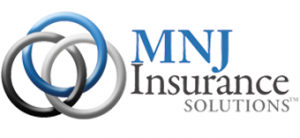Section 125: Advantages for the Employer AND Employee
Section 125 Cafeteria Plan
A Section 125 cafeteria plan is an employee benefits program designed to take advantage of the pre-taxed savings through the Section 125 of the Internal Revenue Code. The cafeteria plan allows employees to pay certain qualified expenses, such as health insurance premiums, on a pretax basis, and therefore reducing their taxable income and increasing their spendable/take-home income. Funds set aside in a flexible spending accounts (FSA) are not subject to federal, state, or Social Security taxes. On average, employee save from $0.25 to $0.49 for every dollar they contribute to the FSA.
Premium Only Plan (POP)
Employers may deduct the employees portion of the company sponsored insurance premium directly from eligible employees paycheck before taxes are deducted.
Flexible spending account (FSA)
In a FSA, employees may set aside on a pre-taxed basis of pre-established amount of money per plan year. The employee can use the funds in the FSA to pay for eligible medical, dependent care, or transportation expenses, depending on the plans the employer offers.
Benefits to the Employer:
Employers may add a FSA plan as a key element in their overall benefit package. Because an FSA plan offers a tax advantage, employers experience tax savings from reduced FICA, FUTA, SUTA, and Worker’s Compensation taxes on participating employees. These tax savings reduce or eliminate the various costs associated with offering the plan. Meanwhile, employee satisfaction is heightened because participating employees experience a “raise” at no additional cost to the employer. Increase participation equals greater tax savings to the employer.
Benefits to the Employee:
An employee who participates in the FSA must place a certain dollar amount into the FSA each year they wish to participate. This election amount is deducted from the employee’s paycheck (for that amount divided by the number of payroll periods). For example, an employee is paid 24 times a year, and elects $1200 to contribute towards his/her medical FSA. The $50 is deducted pre-tax from each paycheck and it’s held in an account by the plan administrator to be reimbursed upon qualifying claims submissions.
The Use-It-Or-Lose-It Rule and Carryover:
This rule states that any funds remaining in the participating employee’s FSA account at the end of the plan year will be forfeited to the employer.
In addition, there is a new carryover provision that was implemented on October 31, 2013, where employees carryover up to $500 of unused medical FSA funds from one plan year to the next with no fees or penalties. Carryover ensures the participating employee a safety net when determining how much money to set aside in a medical FSA each year. Employees can contribute funds with more confidence, knowing they will not lose funds (maximum carryover is $500) at the end of the plan year. NOTE: This must be included in the Section 125 the plan document to allow such carryover.
Cafeteria plans are qualified, non-discriminatory benefit plans, meaning a discrimination test must be met based on the elections of participants.
Qualifying Events that will Allow a Participant to Adjust or Revoke a Plan Election:
- A marriage or divorce
- Death of spouse or dependent
- Birth or adoption of a child
- Termination or commencement of a spouse’s employment
- Change in employment status from full-time to part-time, or part-time to full-time for you or your spouse
Please refer to your summary plan description “SPD” for more information about changing your elections. Changes must be made within 30 days of the qualifying event.
Nondiscrimination testing:
Section 125 of the Internal Revenue Code requires that cafeteria plan to be offered on a non-discriminatory basis. To ensure compliance, the Internal Revenue Code sets forth testing requirements that must be satisfied on an annual basis. These testing requirements are in place to make certain that cafeteria plan benefits are available to all eligible employees under the same terms, and that the plan does not favor highly-compensated employees, officers, and owners.
Exceptions in Participation in the Section 125 Cafeteria Plan:
The following individuals are not eligible to participate in a section 125 cafeteria plan, including a premium only plan “POP.”
More than 2% shareholder of an S-Corporation, nor any family members, Sole Proprietor, Partner in a partnership, or Nonemployee director, so we serving on the corporation’s board of directors (and not otherwise providing services to the corporation as an employee).
Special rules apply to more than 2% shareholder of the organization. These individuals may not participate in the plan, nor made their employee spouse, children, parents, and grandparents. In determining the status of an individual that becomes or ceases to be more than a 2% shareholder during the course of the S-corporation’s taxable year, the individual is treated as a more than 2% shareholder for the entire year.
If you would like more information and find out if a Section 125 Premium Only Plan and/or Flexible Spending Account is right for your company, please contact MNJ Insurance Solutions at (714) 716-4303.
For more details, please refer to:
http://www.irs.gov/pub/irs-drop/n-05-42.pdf
FAQs about Affordable Care Act Implementation (Part XXII)
This content is provided for informational purposes only. While we have attempted to provide current, accurate and clearly expressed information, this information is provided “as is” and MNJ Insurance Solutions makes no representations or warranties regarding its accuracy and completeness. The information provided should not be construed as legal or tax advice or as a recommendation of any kind. External users should seek professional advice form their own attorneys and tax and benefit plan advisers with respect to their individual circumstances and needs.





